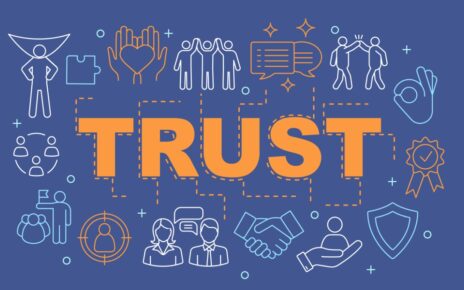When it comes to the success of your business, the Power of Trust is a critical component that you must consider. By understanding the basics of trust, you can ensure the longevity of your company.
Integrity
Integrity is one of the pillars of trust and credibility in the workplace. This is a very important factor for organizations to sustain their success. Creating an organizational culture of integrity is a powerful way to create a highly valued work environment that attracts talent and motivates employees.
One way to demonstrate integrity is to treat others with respect. Another is to honor their ideas. People are more likely to collaborate and support individuals with integrity. In addition, people with integrity are more disciplined and motivated to accomplish their goals.
A third way to demonstrate integrity at work is to make sure you are prepared for the day. You need to plan your day, get your work done, and be ready to engage with your team.
Engagement
Engagement and the power of trust in business are crucial. Employees are motivated by the idea that a leader is on their side, and that they will receive fair treatment. In return, they deliver results, which creates value for both the employer and the employee.
While there are a number of facets to building engagement, there are certain best practices. Among these, the most effective measures of engagement are those that involve communication and recognition. These actions provide a foundation for a productive work environment, which is necessary to produce high-quality products.
Trust can be earned slowly or quickly. However, there is no such thing as a foolproof way to build trust, nor is it easy to measure. To succeed, it’s important to identify which factors to emphasize and when.
Fairness
Fairness and the power of trust are essential components of organizational performance. Fairness can influence a firm’s performance, and trust can encourage employees and suppliers to collaborate and share ideas. There are many factors that affect the level of trust.
In the case of suppliers, a fair price in a supply chain ensures that all production costs are covered. This leaves money for investment. It also ensures a decent standard of living for producers. Moreover, a stable market helps to increase suppliers’ fairness perception.
Many researchers have shown that fairness matters. However, there is a limited number of studies that link fairness to organizational performance. Most research has focused on employee reactions to fairness, and few studies have been conducted on how fairness can affect financial performance.
Bottom-up rather than top-down
Top-down management and bottom-up management are both popular management styles. However, whereas top-down is a hierarchical approach that relies on leadership at the top, bottom-up is an employee-centric approach that gives employees the opportunity to contribute to company decisions.
While both approaches have advantages and disadvantages, they can be adjusted to fit the needs of a particular group. Oftentimes, top-down can be more efficient in time-sensitive situations, while bottom-up can be more flexible. Both styles also offer benefits for companies looking to grow. Choosing the right balance of these approaches can help maximize company growth.
The biggest benefit of bottom-up management is that it involves more employees in the decision-making process. This can speed up internal changes and accelerate innovation. It can also help increase employee retention and engagement.




